
Laura Lopez Harwood (middle) and her colleagues. Photo courtesy of Laura Harwood
Laura Lopez Harwood grew up in a Latino immigrant household where mental health was something that was tucked under the rug and never talked about.
For years, Harwood felt lost, unsheltered and many times unable to find the will to continue with her life.
Substance abuse, stigmatized illness and trauma were some of the ongoing problems that Harwood experienced while living on the streets for years.
Her former life couldn’t be any different than what it is today.
Today, she is the deputy chief programs officer at Hope the Mission, one of the largest rescue missions in the country. Hope the Mission provides a wide range of services to people who are homeless, housing insecure, or experiencing addiction like Harwood once did.
Some of the services include providing individuals with warm meals, interim housing, therapy, peer support and substance use disorder groups, housing workshops and dedicated on-site clinician support.
She remembers when she herself needed these services.

Laura with her parents. Photo courtesy of Laura Harwood
Today, Harwood is 11 years clean from drug addiction, a plight that lasted 22 years.
Harwood, 48, says her lived experience drives her passion for creating inclusive support systems that honor the diverse backgrounds of those she serves today. She now manages the largest number of interim shelters in the state through her work at Hope the Mission, where she began working eight years ago.
As a young child, Harwood’s parents were absent. Both parents worked long days to bring food to the table for Harwood and her five other siblings. Her father also struggled with alcoholism. “Growing up at home, my parents were always at work and they were always stressed out. There was never money for this, never money for that,” Harwood told CALÒ News. “And when they were around, they were really overprotective. [My siblings and I] couldn't go outside to play with anybody.”
Despite her overprotective family, Harwood was sexually assaulted at the age of eight in her own home, something that infused a great deal of resentment and trauma. “Being that they were overprotective, I held a big resentment towards some people in my family for not actually protecting me,” she said.
A year later, at nine years of age, Harwood began hanging out with people in her neighborhood who, according to her, were not good influences. She began hanging with the wrong crowd because, as Harwood explained, she was angry at the assault she had experienced. She grew more resentful towards her father, “So I tried to do anything and anything to make [him] mad,” she said.

Today Laura Harwood is 11 years clean from addiction, an addiction that lasted 22 years. Photo courtesy of Laura Harwood
Never receiving any mental health resources to work through that trauma, and despite being good at school, Harwoo’s life began to turn toward the road of drugs and then, at the age of 18, she started doing cocaine. At the age of 19, her former boyfriend introduced her to crack cocaine, which became an addiction and ultimately, resultied in her homelessness.
Approximately 20 to 35 percent of people experiencing homelessness have also reported substance use disorders, according to the Los Angeles County Department of Public Health (CDPH). The department called the mortality rate earlier in May, “unacceptably high.” among people experiencing homelessness.
For the last six years, the leading cause of death among homeless individuals in L.A. has been drug overdoses, accounting for 37% of all deaths in 2022, with the epicenter being in Skid Row, according to the most recent data and findings of the CDPH’s fifth annual report.
Harwood believes the conversation of homelessness and drug addiction go hand in hand, but so does the topic of mental health. Harwood said openly talking about mental health and not stigmatizing the emotional and mental reality that she was under in her younger years could have saved her from the many things she endured.
“There's no communication in the Latino family. And I think that one of the major problems is that we don't know how to communicate with each other. We rely on screaming or negative talks because that's the only way many of us grew up, but that is not an excuse,” she said. “We must be better. As Latinos, we must be open-minded and very supportive of our kids and communicate with them.”
Harwood said her mission is to listen to those in need and provide them with the mental health services that are often overlooked or pushed to the very end of someone's list.
“I treat people how I want them to treat me because I remember being in the streets getting high,” she said. “When they talk to me and I talk to them, it's a personal relationship because I feel their pain. I know what they're going through and I know how hard it is for them to come out of that space.”

Laura Lopez Harwood and her kids. Photo courtesy of Laura Harwood
Harwood’s drug addiction also led her to being incarcerated, resulting in her losing custody of her kids. During that time, the road to recovery seemed more likely as she was not using drugs. “When you come out of prison, your self-esteem is very low; I felt like no one would ever hire me,” she said.
Despite being out of jail, she didn't want to go home, because she feared being misunderstood or judged. “I spent very little time at home. I would want to go anywhere but my house. I felt that it would make me want to use [drugs] again.”
To fight the urge to spend time at home and stay busy and occupied, Harwood began volunteering, while at the same time trying to better the relationship with both of her kids now that she was clean.
Laura's path to recovery led her to volunteer with Hope the Mission and years later begin a full-time position.
“I began to volunteer to do anything that I could help with,” she said. “I started talking about more leadership roles until I was hired. From then my confidence grew, I started having an income and I felt more seen and confident.”
Hope Mission jumpstarted Laura’s career and helped her get closer to her kids and current husband.
Harwood says that looking back at her story, she is reminded of the power of second chances and the importance of breaking cycles of addiction.
“Being there for your family is important, on a different type of level, not just financial. I think that's extremely important because once the kids start feeling like you're not paying attention to them and you don't love them because you're too busy working and trying to make a living—that is never good,” she said.
Today, Harwood is working on getting her master’s degree in public administration from California State University, Northridge, a journey she hopes to finish in May 2025.

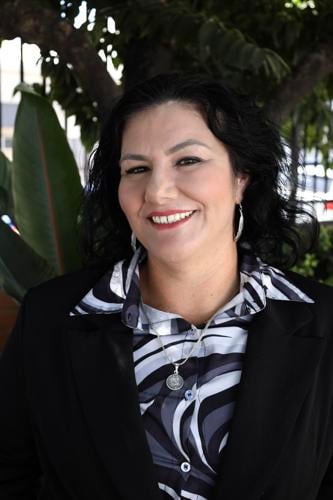
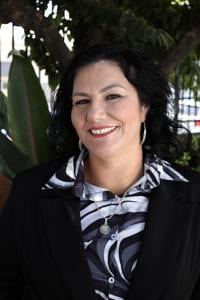


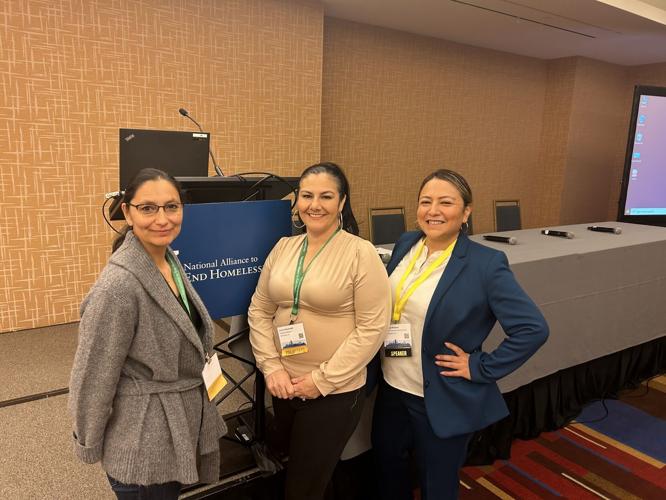
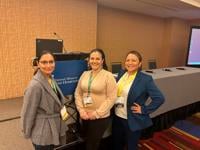
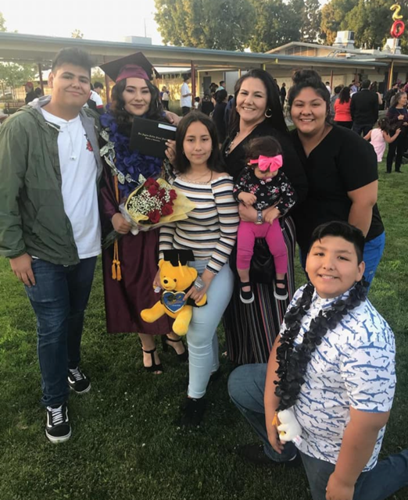
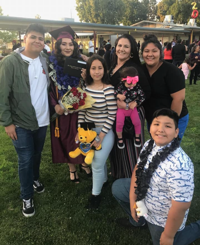











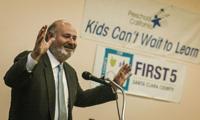


(0) comments
Welcome to the discussion.
Log In
Keep it Clean. Please avoid obscene, vulgar, lewd, racist or sexually-oriented language.
PLEASE TURN OFF YOUR CAPS LOCK.
Don't Threaten. Threats of harming another person will not be tolerated.
Be Truthful. Don't knowingly lie about anyone or anything.
Be Nice. No racism, sexism or any sort of -ism that is degrading to another person.
Be Proactive. Use the 'Report' link on each comment to let us know of abusive posts.
Share with Us. We'd love to hear eyewitness accounts, the history behind an article.